When it comes to maintaining the efficiency and longevity of garden lights with solar panels, proper cleaning is essential. In this article, we’ll explore the reasons why cleaning solar panels on garden lights is crucial, the tools required for the task, and a step-by-step guide on how to effectively clean the panels. We’ll delve into the recommended frequency for cleaning, the benefits of regular maintenance, and the potential risks of neglecting this important task. By the end of this article, you’ll have a comprehensive understanding of the significance of maintaining clean solar panels on garden lights and the actionable steps to achieve optimal results. So, let’s get started.
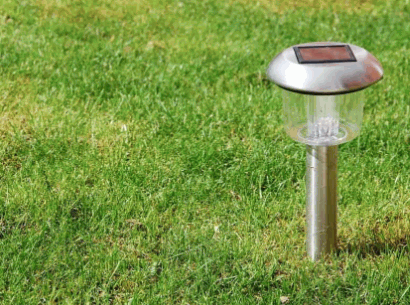
Why Clean Solar Panels On Garden Lights?
Regular maintenance and cleaning of solar panels on garden lights is essential to ensure optimal efficiency, performance, and longevity.
This not only maximizes energy production but also minimizes the environmental impact. Keeping the solar panels clean allows them to capture as much sunlight as possible, thereby ensuring they operate at peak efficiency. By adopting best practices and using gentle cleaning methods with appropriate solutions, homeowners can prevent dirt and debris build-up. This preventative maintenance is crucial for preserving and extending the lifespan of the solar panels, ultimately contributing to a sustainable energy source for years to come.
Learn more: How To Clean Solar Panels
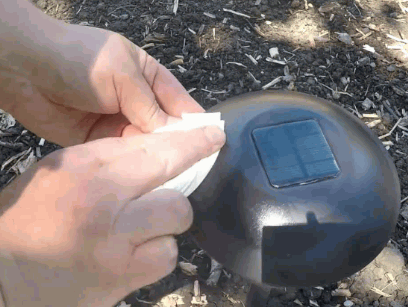
What Tools Are Required To Clean Solar Panels On Garden Lights?
Cleaning solar panels on garden lights requires specific tools and techniques to ensure thorough and safe maintenance.
These tools include water, mild soap, a soft sponge or brush, and other gentle cleaning supplies to prevent scratching the panels. When cleaning the panels, it is crucial to use a non-abrasive approach to avoid damaging the surface.
Begin by gently rinsing the panels to remove loose debris and then proceed to lightly wash them with the soapy water using a soft sponge or brush. It’s important to avoid using abrasive materials or harsh chemicals, as they can cause irreversible damage to the panels. Always follow the manufacturer’s instructions and safety guidelines to ensure the longevity and efficiency of the solar panels.
How To Clean Solar Panels On Garden Lights?
Correctly cleaning solar panels on garden lights involves several essential steps and techniques to ensure thorough maintenance and optimal performance.
Disconnect The Solar Panels
Before initiating the cleaning process, it is crucial to disconnect the solar panels from the power source to ensure safety and prevent any electrical hazards.
This precaution is essential to protect both the individuals involved in the cleaning process and the solar panel system itself. By disconnecting the power source, the risk of electrical shock or damage to the panels is significantly reduced. It also allows for a thorough and safe cleaning process without the concern of accidental electrical contact.
Following proper safety measures, such as wearing appropriate personal protective equipment and using non-abrasive cleaning solutions, further ensures the effective and safe maintenance of solar panels.
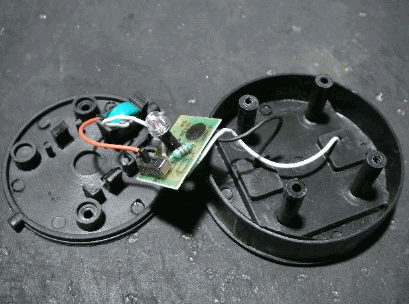
Inspect The Solar Panels
Carefully inspect the solar panels for any debris, dirt, or signs of damage before proceeding with the cleaning process. It is crucial to thoroughly examine the panels to ensure their optimal performance and longevity. Debris and dirt can significantly reduce the efficiency of solar panels, preventing them from harnessing solar energy to their full capacity. Any signs of damage should be addressed promptly to avoid further deterioration and potential malfunction.
By handling the inspection process with care and attention to detail, you can identify and address any issues, ultimately ensuring the continued effectiveness of your solar energy system.
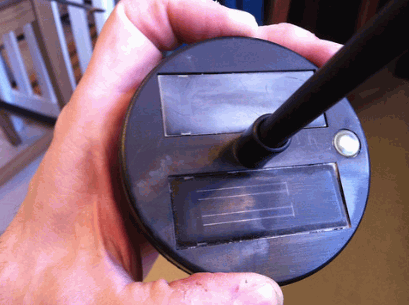
Clear Away Debris And Dirt
Utilise gentle techniques and appropriate tools to effectively remove any debris and dirt from the surface of the solar panels, avoiding scratches and damage.
Begin by inspecting the solar panels for any signs of damage or build-up. Use a soft-bristled brush, mild detergent, and a gentle stream of water to carefully wash away the dirt and debris. Avoid abrasive materials, such as steel wool or harsh chemicals, as these can cause scratches and damage to the protective coating on the panels. Remember to clean in the early morning or late evening to prevent the cleaning solution from drying too quickly in the sunlight.
Use A Cleaning Solution
Prepare a non-abrasive cleaning solution using water and mild soap to effectively remove and prevent the build-up of dirt and debris on the solar panels.
This mild cleaning solution can be easily made by mixing water with a small amount of mild soap. Gently wash the solar panels using a soft sponge or cloth to ensure a thorough and non-abrasive cleaning process. This method not only removes existing dirt and debris but also helps prevent their build-up, ensuring optimal performance of the solar panels over time.
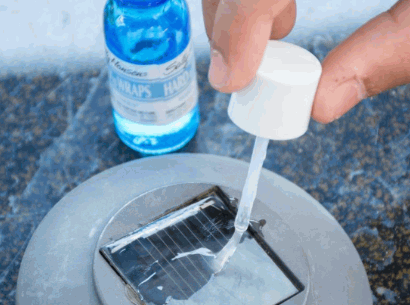
Rinse The Panels
Thoroughly rinse the solar panels with water to ensure the complete removal of cleaning solution and dirt, following a periodic cleaning schedule.
This rinsing process is crucial for maintaining the effectiveness of the solar panels. It helps to get rid of any residue from the cleaning solution as well as any accumulated dirt or debris, thus ensuring that the panels are able to receive maximum sunlight and operate at peak efficiency. By adhering to a regular cleaning schedule, the performance and longevity of the solar panels can be optimized, ultimately contributing to greater energy production and cost savings over time.
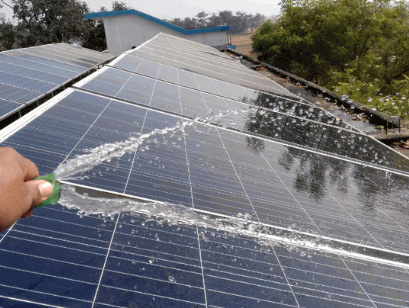
How Often Should You Clean Solar Panels On Garden Lights?
Determining the optimal cleaning frequency for solar panels on garden lights is crucial to ensure their proper and effective maintenance.
This frequency is influenced by several factors, including the local climate, the amount of dust and debris accumulation, and the angle at which the panels are installed. In areas with low rainfall and high dust levels, more frequent cleaning may be necessary. Seasonal variations play a role, as panels may require more attention during pollen season or after heavy storms. Proper and periodic cleaning not only maintains the efficiency of the solar panels but also extends their lifespan, ensuring that they continue to generate maximum energy output.
What Are The Benefits Of Cleaning Solar Panels On Garden Lights?
Cleaning solar panels on garden lights offers numerous benefits, including:
- Improved efficiency
- Extended lifespan
- Enhanced aesthetics
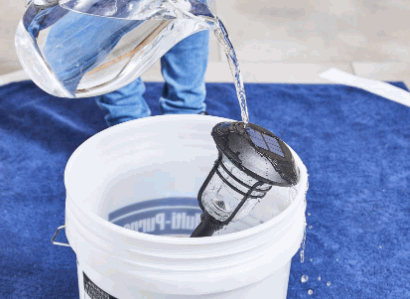
Increases Efficiency
Regular cleaning of solar panels significantly increases their efficiency and effectiveness, optimizing energy production and maximizing overall productivity.
This maintenance activity ensures that the panels operate at their peak performance, allowing them to absorb the maximum amount of sunlight and convert it into energy. Clean panels can enhance the effectiveness of the photovoltaic cells, reducing energy loss due to dust or debris accumulation and improving the overall productivity of the solar system.
By keeping the panels clean, solar plant owners can ensure that their investment in renewable energy generation is performing optimally, leading to greater energy output and cost savings.
Extends Lifespan
Efficient cleaning practices play a crucial role in preserving and extending the lifespan of solar panels on garden lights, ensuring their longevity and sustained performance.
Regular cleaning not only removes dirt and debris that can block sunlight and hinder the panels’ efficiency but also prevents the buildup of grime and pollutants that can corrode the surface over time. By implementing preventative maintenance measures such as routine cleaning, solar panel owners can mitigate potential damage and maximize the lifespan of their investment.
Proper cleaning can significantly contribute to the sustained performance of solar panels, allowing them to consistently generate energy for years to come.
Enhances The Appearance
Clean solar panels contribute to the improved aesthetics of garden lights, ensuring unobstructed and clear surfaces that enhance their visual appeal.
The unobstructed and clear surfaces of clean solar panels allow ambient light to be captured efficiently, resulting in a more visually appealing garden space. When solar panels are free from dirt, dust, and other debris, the reflective surfaces can elegantly blend in with the garden lights, creating a seamless and cohesive look. The maintenance of clean solar panels helps to maintain the overall cleanliness and neatness of the garden, elevating the visual impact of the entire outdoor space.
Clear panels also provide a clearer view of the underlying decorative elements and landscaping, adding to the aesthetic allure.
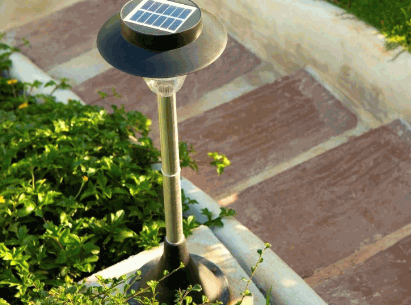
What Are The Risks Of Not Cleaning Solar Panels On Garden Lights?
Neglecting the cleaning of solar panels on garden lights poses significant risks, including:
- Reduced efficiency
- Shortened lifespan
- The potential for damage due to accumulated dirt and debris
Reduced Effectiveness
Failure to clean solar panels leads to decreased efficiency and compromised performance, emphasizing the importance of proactive maintenance for optimal productivity.
Reduced Life Expectancy
Ignoring the cleaning of solar panels results in a shortened lifespan and the potential for damage, undermining efforts to preserve and extend their longevity.
Regular maintenance is crucial for keeping solar panels operating at maximum efficiency. Dust, dirt, and debris accumulation can obstruct sunlight absorption and reduce the energy output of the panels. Neglecting cleaning could lead to permanent staining, scratching, or corrosion, ultimately affecting the overall performance and lifespan of the solar panels.
Therefore, it is essential to prioritize regular cleaning to maximize the efficiency and longevity of solar panel systems.
Potential Damage
The accumulation of dirt and debris due to neglect can lead to potential damage, emphasizing the importance of avoiding, removing, and preventing such build-up through regular cleaning.
This neglect can result in clogged air filters, reduced HVAC efficiency, and potential fire hazards. Regular cleaning reduces the risk of mold growth, pest infestations, and deterioration of surfaces. Failure to address these issues can lead to costly repairs and health concerns.
By incorporating preventive measures such as regular vacuuming, dusting, and clearing vents, homeowners can mitigate the risk of damage caused by dirt and debris build-up.



